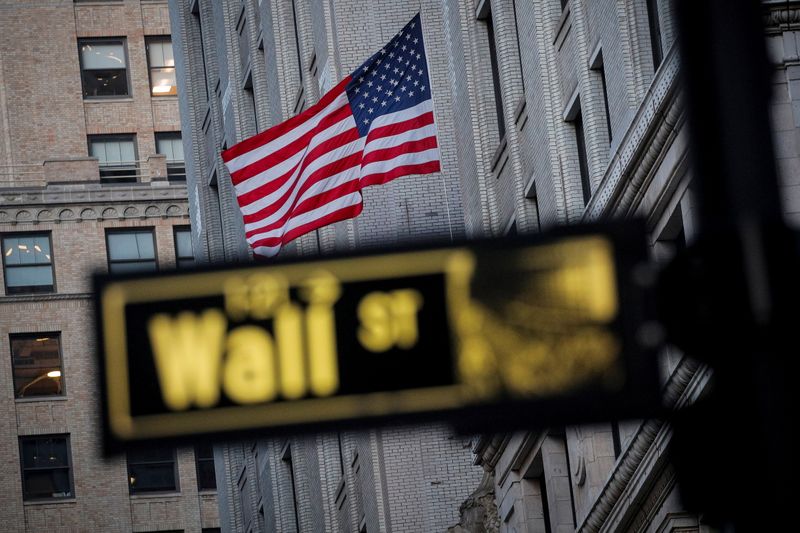This post was originally published on this site
https://i-invdn-com.akamaized.net/trkd-images/LYNXMPEGBH0B5_L.jpg
NEW YORK (Reuters) – Surging U.S. stocks are stretching equity valuations near their highest levels in years, leaving investors to determine whether the rally signals a coming economic rebound or an asset price bubble in the midst of a global pandemic.
After a 15% year-to-date rally, the S&P 500 trades at 22 times forward earnings, compared to a historical average of 15.3 times, according to Refintiv Datastream.
The technology sector, which accounts for nearly 28% of the index, trades at an even higher P/E ratio: 26.4 times compared to its historic average of 20.6 times.
Bulls argue stock prices are justified, with expectations that vaccines against COVID-19 will support a reopening of the economy. They also tout the relative attractiveness to assets such as bonds, with yields at extremely low levels.
Others believe pockets of the market have already entered overvalued territory.
“In aggregate, (stock valuations) are elevated .. relative to history. In certain parts of the market, there is definitely a bubble,” said Walter Todd, chief investment officer at Greenwood Capital.
Federal Reserve Chairman Jerome Powell weighed in on the debate in the press conference following the central bank’s monetary policy meeting on Wednesday, saying he did not believe equities were overpriced on a risk-reward basis and pledging the Fed would continue supporting the economy with its massive monthly purchases of U.S. government bonds.
The S&P 500 is up 66% from its March lows and hit a record high on Thursday, even as data showed the number of Americans filing first-time claims for jobless benefits unexpectedly rose last week, offering more evidence economic recovery was faltering.
Skeptics point to a 680% rally this year in Tesla (NASDAQ:TSLA) shares, Bitcoin‘s climb to $20,000, and money pouring into special purpose acquisition companies, or SPACs, as evidence of bubble-like investor behavior.
Meanwhile, a BofA Global Research survey showed this week that stock-hungry fund managers dropped cash levels so low it triggered a “sell” signal for equities in the bank’s model.
In his Wednesday comments, Powell said while P/Es are “historically high,” the “equity premium, which is really the reward you get for taking equity risk… is not at incredibly low levels, which would mean that (stocks) are not overpriced in that sense.”
The equity risk premium, which compares the earnings yield on stocks to the yield for the U.S. 10-year Treasury note favors stocks over bonds, according to Keith Lerner, chief market strategist at Truist Advisory Services.
Historically, when stocks hold equity risk premium levels they are at currently, the S&P 500 has outperformed the 10-year Treasury note by 10.3% over the following 12 months, Lerner said.
“People who say the market is highly valued, they are correct,” Lerner said. “People who say the equity market has relative value, in our view that is correct.”
Equities look comparatively attractive because dividend, earnings and cash flow yields are much higher than fixed income yields, JPMorgan (NYSE:JPM) Private Bank said in a recent report.
“You may not be getting a bargain in stocks, but they will likely outperform fixed income and cash next year,” the bank’s outlook report said.
Another factor supporting stocks, Lerner said, is that valuation measures may not fully account for the corporate earnings boost in the coming years, should the economy recover.
Valuations of mega-cap companies with huge weight in the S&P 500 are also skewing overall market valuations higher, said Quincy Krosby, chief market strategist at Prudential Financial (NYSE:PRU).
Pockets of value exist elsewhere, such as in airlines, hotels and real estate companies that were hammered by the pandemic-induced economic shutdowns, Krosby said.
The valuations of the market’s “most dormant” companies “are not stretched by any means at this point,” Krosby said.

